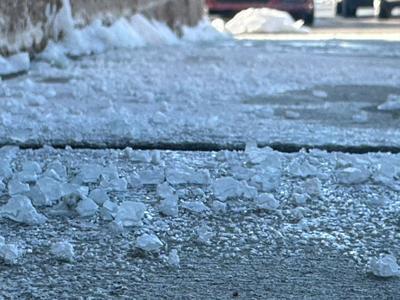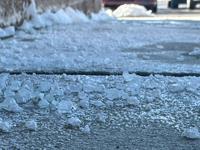CARTERVILLE, Ill. (WSIL) --ÌýRoad salt is essential for our safety during times of winter weather, however, one environmentalist says there's a cost.
The dusty remnants of road salt is powdered across the roads after the major snowfall across our region. While road salt is inexpensive and effective in melting ice and snow, a SIU professor says it can cause significant damage to infrastructure, vehicles, and the environment.
Ìý
Director of the SIU School of Earth Systems and Sustainability Justin Schoof, said the cost of using salt on our roads can add up in ways we might not consider.Ìý
Ìý
"It turns out that if you look at the cost of salting our roadways and you look at all the, what we would call externalities, it turns out that it's about 5 billion dollars per year that we're actually paying for adding salt to our roadways," Schoof said.Ìý
Ìý
A report from states road salt can corrode vehicles and contribute to potholes. Schoof said it doesn't take much salt to have a detrimental impact on the ecosystem by altering soil chemistry and making it difficult for vegetation to grow. He said salt runoff can contaminate freshwater sources, harming local wildlife.Ìý
Ìý
"It makes it harder for vegetation to grow in soil that has had salt added to it effectively, and so that's what happens is that, as that water then runs off our roadways and into the streams that we often have on our sides of the roadways, those ditches and things, that salt is then distributed throughout the environment where it can have detrimental impact," Schoof added.Ìý
Ìý
Schoof contributes the main issue to using salt in excess. There are communities actively seeking alternatives to excessive road salt usage. These include spraying liquid brine and even developing porous road materials to absorb water that would otherwise sit on the surface. We already see liquid salt brine chemicals used here in southern Illinois with various agencies.
Ìý
Schoof added, individuals can also contribute to reducing the environmental impact by using salt sparingly, only in necessary areas, and sweeping up excess salt to prevent redistribution before the next rainfall.Ìý














